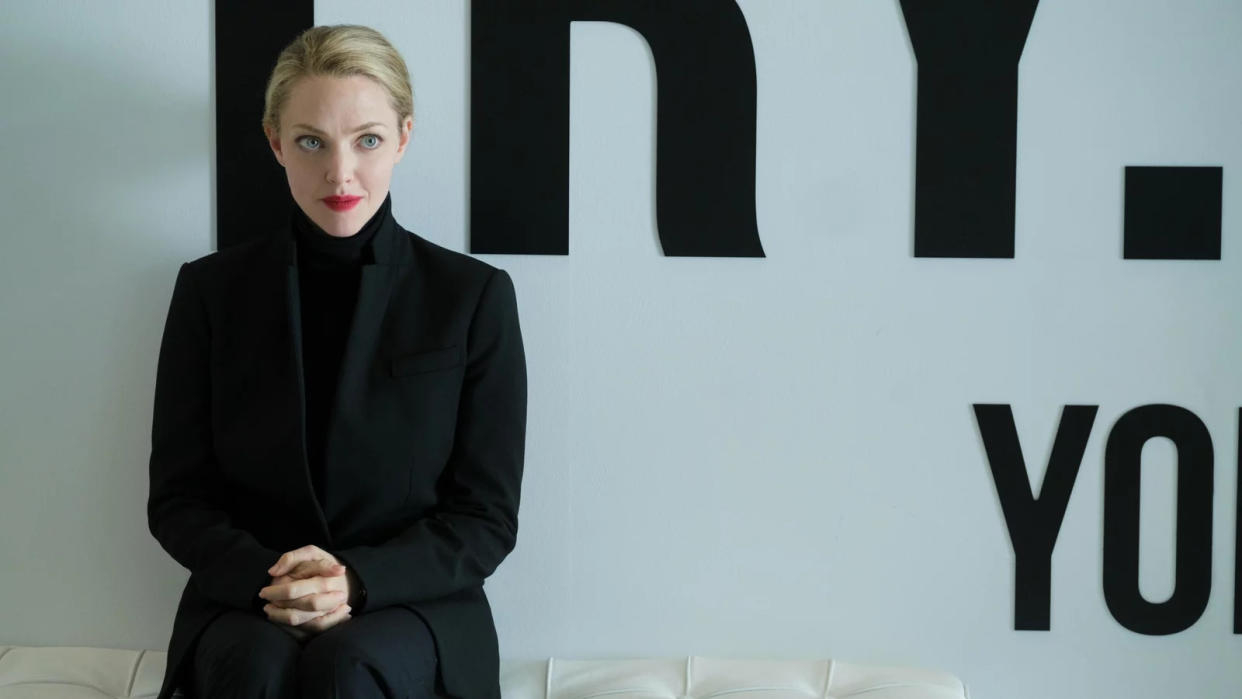Why Hollywood's obsessed with Silicon Valley: 'Everybody loves a rise-and-fall story'
Hollywood is obsessed with Silicon Valley — for now anyway.
Over the past few weeks, viewers have watched Amanda Seyfried mimic disgraced Theranos founder Elizabeth Holmes in Hulu's "The Dropout" (DIS), and Joseph Gordon-Levitt take on ousted Uber CEO (UBER) Travis Kalanick in Showtime's "Super Pumped" (PARA).
On March 18, Apple TV+'s "WeCrashed" (AAPL) will see Jared Leto as Adam Neumann, the disgraced CEO and co-founder of WeWork (WE), who was pushed out of his role as CEO in late 2019, amid issues around the size of his controlling stake and other controversies.
The stories are sensational, and in some ways diabolical — hence why Hollywood is cashing in.
"Why wouldn't they?" said Robert Thompson, Syracuse University professor of TV and pop culture.
These stories are "compelling, they're about recognizable brands, and they make up the sudsy, delicious kinds of drama that people have liked in entertainment for a long time" with a modern-day spin of "the new American dream," Thompson told Yahoo Finance.
Margaret O’Mara, distinguished professor of history at the University of Washington, agreed, adding, "Silicon Valley was always the nerdy, Northern California cousin of glamorous Hollywood, but now these tech companies are reshaping everyone's lives. We know these brands. People ride around in Uber, maybe they work in a WeWork."
"Young protagonists with lots and lots of money doing irresponsible things is a really great story ... you don't need to embellish them too much to have a really compelling piece of scripted television," she continued.

Elizabeth Holmes, Travis Kalanick, and Adam Neumann — the complicated and ruthless startup founders whose misfortunes are now Hollywood gold — closely attached themselves to their brands, creating even further intrigue.
In her heyday, Holmes — who is currently awaiting sentencing after a federal jury in San Jose found her guilty on four of 11 counts of wire fraud and conspiracy — appeared on the cover of prominent magazines, including Forbes, Fortune, and Time. She was also named as one of Glamour magazine's women of the year.
[WATCH: Valley of Hope: The Culture That Built Elizabeth Holmes, a Yahoo Finance's documentary]
Kalanick and Neumann also had their fair share of cover photos, with cult-like followings and a 'madness is genius' leadership style.
And then it all came crashing down.
"Everyone loves a rise and fall story ... that scandalous element is irresistible," O’Mara noted, adding that the public's fascination also aligns with current "attitudes toward tech in general — a little more cynical and maybe more negative than it was five, six, or seven years ago."
Still, there's no denying that the media landscape has become oversaturated.
Following "The Dropout" miniseries, which is based on an ABC News podcast of the same name, the Elizabeth Holmes saga is set to be turned into a movie starring Jennifer Lawrence. Not to mention the multiple documentaries that have already aired on streaming services and cable TV.

Thompson explained that "virtually everything" in media has been repurposed in some way — from reboots and sequels to podcasts and docu-series.
"There is just so much more real estate out there to tell so many more stories," he said. He added it wasn't that long ago that just a handful of networks existed with only a certain number of primetime slots; whereas now, "it's almost to infinity and beyond" amid the streaming boom.
"This is partially a Silicon Valley story, too, because we've got peak TV due to all of these streaming platforms, and there's such a hunger for content with a pretty rapid turnaround," O’Mara explained.
"There's also a lot of capital that's available to invest in premium TV with great acting," she added.
As more services compete for subscribers, platforms are constantly looking out for the next big thing. According to Thompson, reboots and reimagined takes of similar stories are easy ways to fulfill that goal.
"Each one of these things, especially if they're a hit, becomes an advertisement and a promotion for the next version," the professor explained. He cited the massive success of the "Tiger King" saga, which was originally a podcast before its chartbuster turn on Netflix (NFLX) in March 2020.
The out-of-this-world narrative also recently debuted as a fictional miniseries on Peacock (CMCSA), starring Kate McKinnon and John Cameron Mitchell.
"Once that stuff starts being told, if you get an interest in it, it's like building up equity in that story ... and you already have an audience built-in," Thompson continued.
The Syracuse professor went on to explain that Hollywood has gone through thematic, cinematic waves before. He cited the "Western" movie as the most popular genre in Hollywood back in the day. Following that, the gangster movie, the romantic comedy, and "real sports" films dominated screens.
"Because movies and TV shows cost so much money to make, you want to put that money into something that has got some sort of predictable possibility of success. That has generally been orchestrated through the 'genres system,' meaning the type of program," Thompson said.
For now, the tale of the bad entrepreneur seems to be sticking. Hollywood can only hope that the stories are more successful on screen than in real life.
Alexandra is a Senior Entertainment & Food Reporter at Yahoo Finance. Follow her on Twitter @alliecanal8193
Follow Yahoo Finance on Twitter, Facebook, Instagram, Flipboard, LinkedIn, YouTube, and reddit
